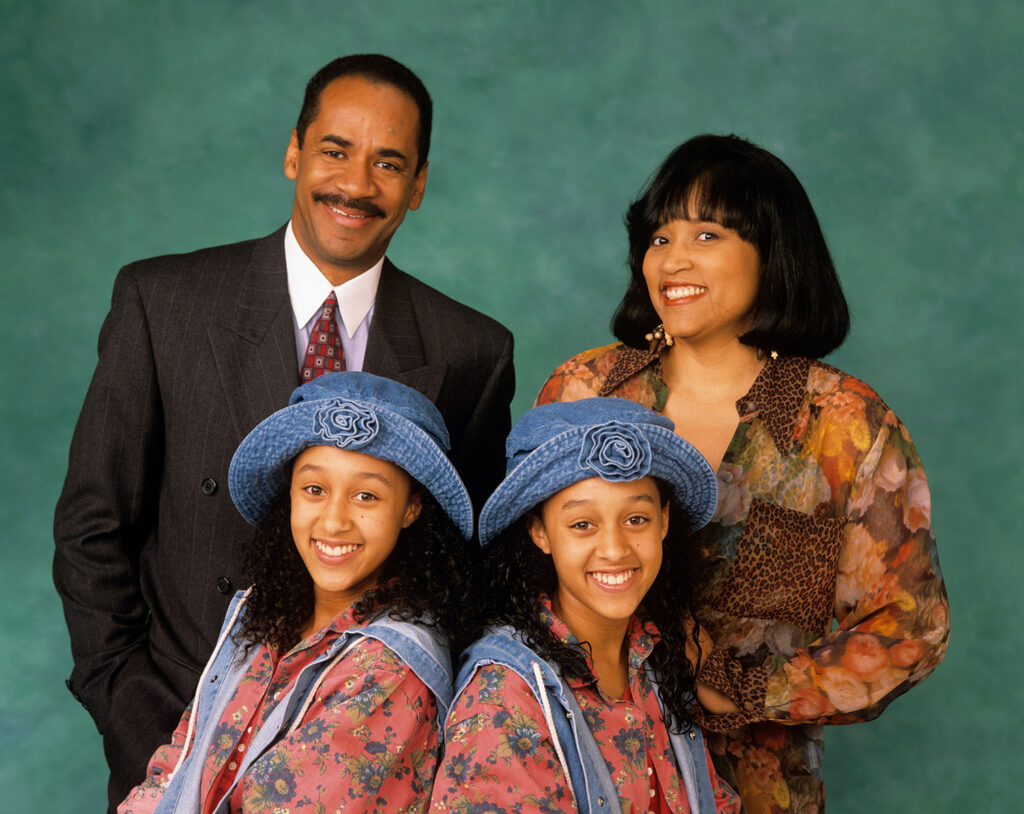I grew up watching reruns of The Cosby Show, Sister, Sister, A Different World, and The Parkers. Back then, there was something magical about Black family, love, and humor broadcasted proudly on our screen.
Now, nearly a decade later, I have the opportunity to experience my favorite childhood pastime all over again after Netflix moved to stream classic Black sitcoms including Moesha, One on One, and Half and Half. Their relaunch has provided solace that couldn’t have come at a better time. Still, as a 2001 baby, there were certain shows that I missed out on entirely and I had never watched until they were on Netflix, particularly Girlfriends. So, in September, I tuned in. I’ve been hooked ever since.
In three weeks, I completed all eight seasons of Girlfriends, a show that closely follows the lives of four Black women and friends in the early 2000s. Watching that show, I felt seen in my entirety. Unlike other series I’ve watched, Girlfriends doesn’t focus on Black women’s plight and suffering or portray them as uneducated or “ghetto” (Rasheeda from Insecure comes to mind); rather, it grapples with themes of love, family, friendship, purpose, and identity.
As much as I appreciate Black films, such as Poetic Justice or Tyler Perry’s Daddy’s Girls, I am bored of the tired Black girl, “baby mama,” drug dealer’s girlfriend trope. I want Black women who look like and think like me and to some extent, Girlfriends gave me the visibility that I craved. As a Black woman and student with aspirations of becoming a lawyer, I see Joan, who is a Junior Partner at a top law firm. I see Lynn, who lacks a little bit of direction, but ultimately finds her way. I see Maya, who gets back up more times than she gets knocked down. Girlfriends seamlessly depicts very real struggles such as uncertainty or a lack of purpose, but also focuses on the highs of life, character development, and growth.
What stood out to me, though, was Girlfriends’ portrayal of Black women in positions of power while living in luxury. Too often, Black women are denied access to certain career paths and opportunities, so to see a show where characters have numerous degrees and are lawyers, authors, and entrepreneurs is refreshing, to say the least. And, as a Black woman pursuing a career in law, the inclusion of characters who have successfully navigated these spaces is encouraging. Watching the characters struggle with racism, sexism, or age barriers in their respective fields while still persevering gives me the validation that although these are real parts of being a Black professional, it doesn’t have to stop me from succeeding. If they can do it, and do it well, then I can, too!
Even though the show aired over a decade ago, its re-release was timely. For me, in particular, it served as a temporary distressor as well as a general means of encouragement. Now, more than ever, I needed to see people who look like me represented positively in the media, and Girlfriends gave me just that.
